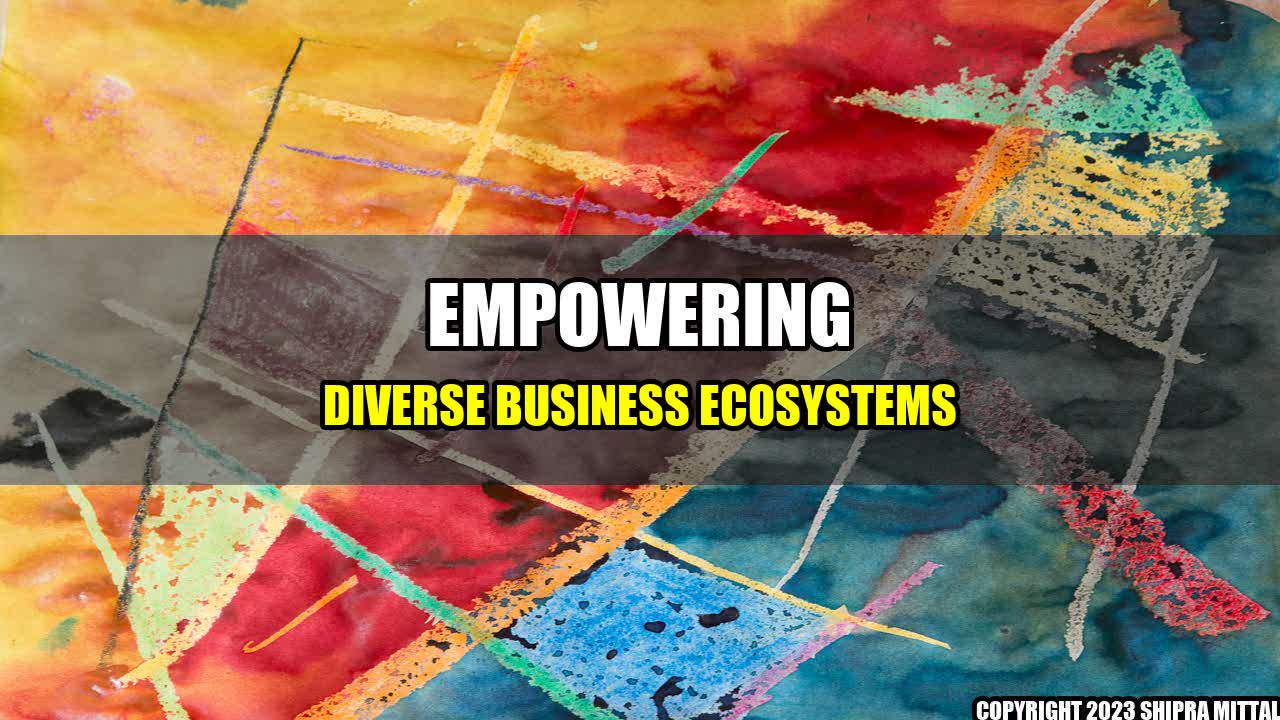Mark, an entrepreneur, started his online business three years ago. He had a great idea, a solid business plan, and enough capital to start the business. However, he soon realized that he lacked a diverse network of suppliers, customers, and partners. As a result, his business struggled to keep up with the competition.
Mark's story is not unique. Many entrepreneurs and small business owners face similar challenges when building their businesses, especially those from underrepresented communities. They often have limited access to capital, talent, and networks, which can hinder their growth and success.
Real-Life Examples
Thankfully, many companies are working to empower diverse business ecosystems by providing resources, mentorship, and funding opportunities to underrepresented communities. Here are some examples:
- Goldman Sachs 10,000 Small Businesses: A program that provides small business owners with access to education, capital, and business support services.
- JPMorgan Chase: A company that invests in small businesses through lending, philanthropy, and community development initiatives.
- DiversityInc: A website that highlights the top 50 companies for diversity and inclusion and offers resources and best practices for building diverse and inclusive workplaces.
Conclusion
Empowering diverse business ecosystems is not only a social imperative but also a key to success in today's global marketplace. By leveraging the power of diversity, businesses can access new markets, ideas, and talent pools and gain a competitive advantage. However, this requires intentional efforts and investments from businesses, governments, and communities.
- We need to increase access to capital, mentorship, and training programs for underrepresented entrepreneurs and small business owners.
- We need to create more inclusive and diverse workplaces that leverage the unique perspectives and talents of individuals from different backgrounds.
- We need to foster partnerships and collaborations between businesses, governments, and communities to create a more equitable and inclusive economy.

Akash Mittal Tech Article
Share on Twitter Share on LinkedIn